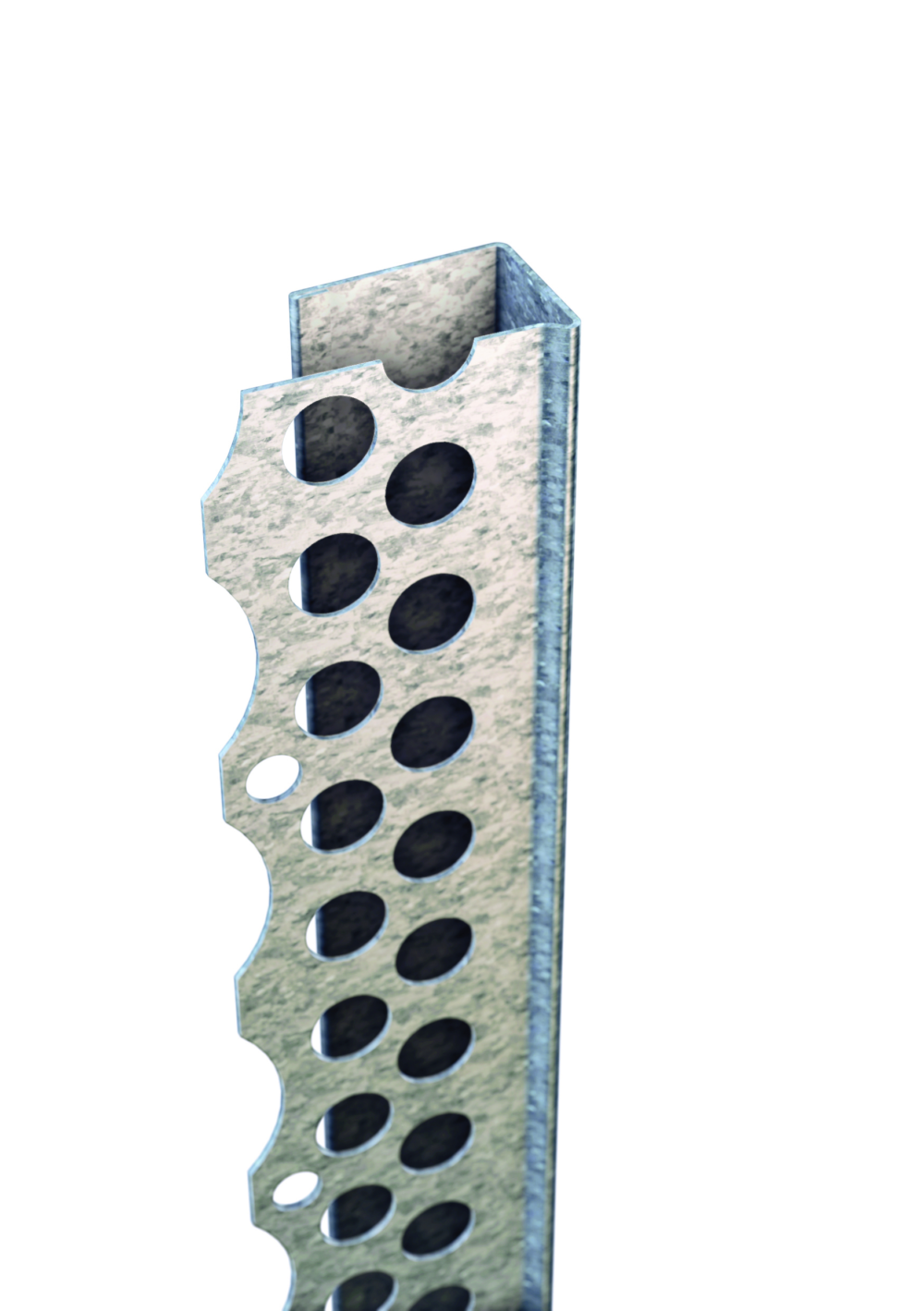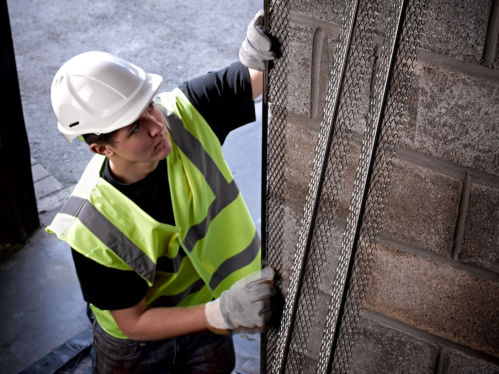
PBEB10
Overview
Product Information
- Product Type
- Galvanised Steel Plasterboard Edge Bead
- Plaster Thickness
- 9.5
- Material
- Galvanised Steel
Specification
| Product Code | Length (mm) | Flange Width (mm) | Plaster Thickness (mm) | Angle (degrees) | Pack Size | |
|---|---|---|---|---|---|---|
| PBEB10/3.0 | 3000 | 25 | 9.5 | 90 | 50 |
- For Plasterboard Edge Bead installation, all backgrounds should be free of deleterious substances such as mould, oil and grease and be adequately prepared to accommodate the finished surface, all beading and attendant fixings at the specified depths. The use of sand or water contaminated with soluble salts in plastering mixes should be avoided, as should soluble chlorides as they are likely to increase the risk of metal corrosion. In conditions where heavy condensation, persistent damp or regular exposure to moisture are likely, PVCu products should be specified.
- Using galvanised or stainless steel nails (compatible with bead material) complying with BS 1202: Part 1, fixed at a maximum of 600mm apart. When nailing to a solid background the line of the bead will follow the line of the background. Press the bead onto dabs of the same material as the undercoat; dabs should be applied at a maximum of 600mm apart. This method will even out minor irregularities in the line of the background, although the line of the bead will tend to generally follow the line of the background. When beads are used with metal lath backgrounds, galvanised or stainless steel tying wire may be used to secure the beads in position. Soft galvanised wire to BS 443 and soft stainless steel wire complying with BS 1554 should be used to match the bead and lath materials. All wires should be twisted tightly, and the ends bent away from the finished face of the coating
- Catnic plaster bead are manufactured to BS EN 13658:2008 Parts 1&2. Application and installation of plaster beads should be in accordance with BS 5492:1990 Code of Practice for internal plastering and BS 5262:1991 Code of Practice for external renderings. Galvanised steel products are manufactured to BS EN 10346-DX51+Z275.
Features
Video Guides
The most popular product in our professional plastering range, Drywall thin coat bead, expertly installed by Colin Teagle, Director of Silver Trowel, demonstrating the ease of installing Catnic's range.
Support & FAQs
Galvanised steel beads are designed to be used for internal plasterwork. The zinc coating protects the steel from corrosion but is generally unsuitable for exterior areas. A number of different galvanised products are available to suit the specific application. Our Catnic range includes angle, depth gauge, movement, architrave and plasterstop beads as well as products for drywall and thin coat plaster. Learn more with our helpful guide
The corrosion resistance of stainless steel makes it suitable for exterior applications and interior areas of higher moisture. In particular stainless steel beads should be used where a cement-based render is being applied. Here at Catnic, there are standard angle and renderstop beads available alongside plasterstop and movement beads for different widths and plaster depths. PVCu (polyvinylchloride unplasticised) beads are recommended for applications with the most challenging environmental conditions. Similar to stainless steel, PVCu plasterbead can be used both for external rendering and internal plastering. PVCu is unaffected by moisture, salt and weathering and is resistant to damage and chemical attack. Learn more with our helpful guide
Plaster beads might be viewed by some as a commodity purchase and as such insufficient care may be taken to select the right product for the job. Yet, using a material that is unsuitable may shorten the life of the plaster or render and present serious issues for the condition of the property. Selecting the correct, high quality plaster bead will ensure a neat, crisp, long lasting professional finish, every time. Here's why it's so important.
